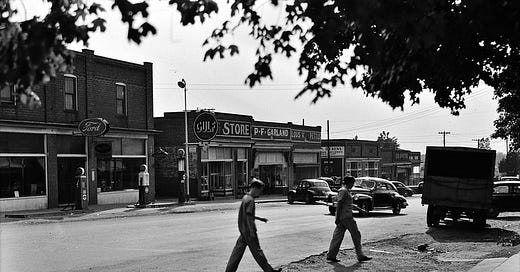Where we live in Mississippi, communities have spent enormous effort and money trying to address entrenched poverty, poor health, inequality, stagnant population growth, sluggish rural economies, and more. After massive federal funding and decades of wars on poverty and cancer and crime and addiction, these issues are still with us, still competing for finite funds, and still lacking in ways to pull Mississippi off the bottom of almost every chart.
It appears that hard work is not the problem, and that funding is not a solution.
Rural communities that were once rich with stories, resilience, and know-how are in decay. Too many live unaware of toxins and how they impact our health, and we don’t really understand the root causes of illness, or why inequality is growing, or why more students are learning disabled, or why obesity is so stubborn.
Are we missing something? Do we need a different lens to see old problems in a new way? What if there were a single strategy that could address each of the above concerns and more? What if there exists a common thread that could be woven into new solutions to old problems? And what if this new strategy fits perfectly at the local level, engages communities around common goals, and sends ripples out to help solve larger issues?
In this Substack series, we offer ‘Living Well Locally’ as such a strategy.
By engaging with lifestyle-based medicine, real food, and regenerative farming, communities can build their economic strategy around wellness, keep food and wellness dollars local, and find hope in the reversing of chronic disease. They can support their residents in healing, create biodiversity, clean their air and water, and ripple out the benefits of healthy humans to larger spheres.
Said another way: reversing chronic disease requires lifestyle medicine and agriculture’s regenerative practices; maintaining wellness over time requires continued self-care, clean environments, and supportive community.
When a community recognizes the potential of ‘living well locally’ and takes ‘health as an economic strategy’, it makes personal wellness a powerful driver for change. As a new level of community awareness takes hold, as residents begin to understand the root causes of chronic disease, a local wellness economy emerges, a culture of health unfolds, and wellness living becomes more accessible to everyone. Local wellness economies become sustainable and resilient and well humans become the source of new solutions for long-standing problems. Change begins one person, one family, one community at a time.
Does living well locally resonate with you as a viable solution? Can you see your community considering health as an economic strategy?
Next Up: How Did We Get Here: So Far from Being Well and Living Locally?




